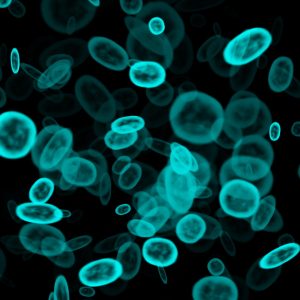 Nobody likes talking about mold in homes. It’s icky and unpleasant. And, in the case of black mold, it’s downright dangerous. Unfortunately, living in a humid place like Florida means we have to confront the reality of mold and mildew sometimes cropping up in our homes. A good defense is the best way to keep these troubles away.
Nobody likes talking about mold in homes. It’s icky and unpleasant. And, in the case of black mold, it’s downright dangerous. Unfortunately, living in a humid place like Florida means we have to confront the reality of mold and mildew sometimes cropping up in our homes. A good defense is the best way to keep these troubles away.
Our expertise when it comes to unwanted mold is when the mold occurs inside a home’s air conditioning system. This can happen, and happen more often than anybody would like. For a number of reasons, ACs can encounter bad mold and mildew problems, which hinder their ability to function, send awful smells around a house, and even spread black mold spores everywhere.
Why Mold May Start in an AC
When you listen to your air conditioner running, you’ll occasionally hear the sound of water dripping inside the indoor unit. This is the condensate moisture dripping off the evaporator coils and falling into a pan beneath. A pump draws the condensate down a drain and out a pipe on the exterior of the house.
The condensate moisture is why an air conditioner may develop extremely humid conditions inside, which is a fertile ground for mold and mildew to start to grow. During days with extremely high humidity—and we have our share of those—the air conditioner’s condensate drainage system can get overwhelmed.
The more likely trigger for moisture, however, isn’t that the day is too humid—it’s that the condensate drainage system isn’t working right. The drain can develop clogs because of algal growth, or the pump stops working. The water will soon overflow the pan and drip from the AC, which is the big warning sign that you need to have technicians in to repair the system. If the system is only draining slowly, it will still skyrocket the humidity levels in the AC.
Mold Is Rotten All Around for the AC
The place where mold is most likely to begin growing inside an air conditioner is along the evaporator coils, which is where moisture first collects. Mold along the coils will restrict the coils’ ability to absorb heat from the air, which will lower the air conditioner’s effectiveness and energy efficiency.
Moldy coils also cause “dirty sock syndrome,” which is an unpleasant moldy odor that starts to seep all through the house. The air blown across the coils will pick up the smell of the mold and then go to all the rooms. As soon as you notice dirty sock syndrome, call for professionals to fix your air conditioning in Lake City, FL.
Finally, any mold in the AC is potentially dangerous if it’s black mold. Don’t wait to find out if you have black mold. Any indication of mold is a reason to call for air conditioning inspection and repair.
You can trust our technicians to handle whatever is wrong. We can restore the condensate drainage system and clean mold off the coils. If your air conditioning system is too old that it can’t handle the humidity levels anymore, we can help you choose and install a new one.
